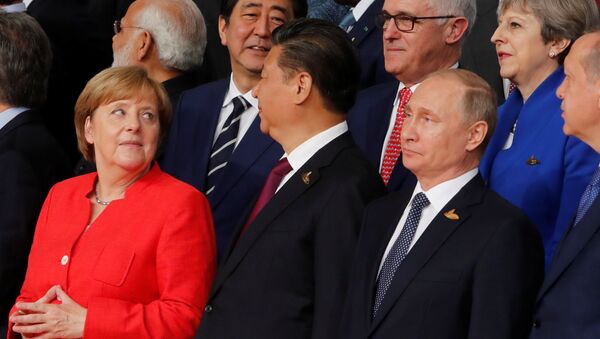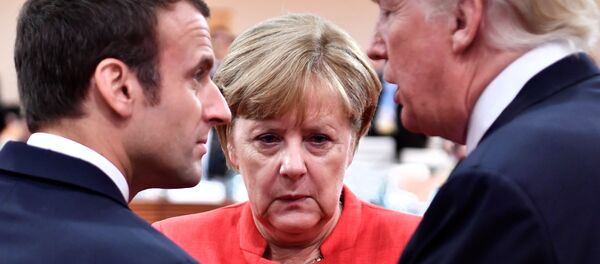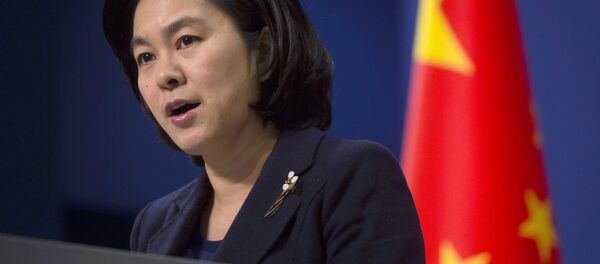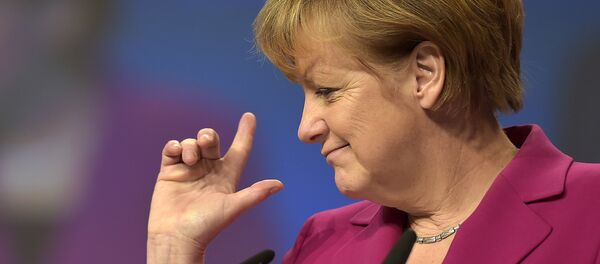Tensions over the situation on the Korean Peninsula continue to mount as the US and South Korea prepare to hold joint military drills next Monday regardless of North Korea's objections.
"My advice to our leadership is that we not dial back our exercises. The exercises are very important to maintaining the ability of the alliance to defend itself," Joseph Dunford, chairman of the US Joint Chiefs of Staff, told reporters Thursday during his visit to Beijing.
Dunford stressed that the US-South Korean military exercises were "not currently on the table as part of the negotiation at any level".
Earlier Russia and China came up with the "double-freezing" plan which envisaged the suspension of both American-South Korean drills and Pyongyang's missile tests in the troubled region.
However, Washington rejected the initiative.
"I am aware of the US response to this 'double freeze' principle," Russian Foreign Minister Sergei Lavrov told reporters Wednesday. "They believe that legal cannot be exchanged for illegal. However, this is not about getting stuck in being right or thinking about certain falsely understood issues of prestige, but about the future of this region and hundreds of thousands of people who, according to experts, may be affected in the event of hostilities."
"During these 10 days… [the US] could make a move, which will be considered by the Democratic People's Republic of Korea (DPRK) as 'the beginning of the war,' or something could happen to any of the South Korean military facilities which will be regard by the Americans as a'declaration of war' by North Korea," Mirzayan assumed.
In this context, the "double-freezing" plan appears to be the best way to ease tensions and open the door to the diplomatic resolution of the crisis, the academic pointed out.
"This plan is not aimed at the 'final solution' of the problem," Mirzayan highlighted, explaining that one cannot untie the Gordian knot of the Korean crisis at once, "The plan… is aimed precisely at 'freezing' the situation to prevent 'nuclear Armageddon.' After stepping back from the edge of the abyss [the countries] would be able to start a normal negotiation process."
On August 15, during a telephone talk with his Chinese counterpart Wang Yi, German Foreign Minister Sigmar Gabriel said that Germany "understands and supports" the "double-freeze" plan and "stands ready to work with China to continuously call on all parties to strive to promote a peaceful settlement of the issue," the Chinese Foreign Ministry's official website reads.
The same day, in his interview with the Koelner Stadt-Anzeiger newspaper, Gabriel lambasted US President Donald Trump for his "incomprehensibly militaristic rhetoric."
"The US president is using incomprehensibly militaristic rhetoric… The danger is that such escalations begin with language and end with military action," Gabriel told the media outlet.
Commenting on Donald Trump's statements regarding US military options toward Pyongyang, German Chancellor Angela Merkel expressed her deep concerns over the Korean crisis and criticized Washington for ramping up the war of words.
"Germany will very intensively take part in the options for resolution that are not military, but I consider a verbal escalation to be the wrong response," Merkel stated last Friday.
Earlier this week, the German Chancellor reiterated her position that the Korean crisis could be solved only through diplomatic measures and referred to a 2003 six-party negotiation precedent.
"We are aimed at finding a negotiating format as it was with the six-party talks," Merkel told the Phoenix channel, as aired on the channel's Facebook page.
In response, Russian Foreign Minister Sergei Lavrov highlighted Wednesday that "the economic pressure [on North Korea] has practically run its course."
"We cannot support the ideas that some of our partners continue to nurture, which literally seek to strangle North Korea economically with all the negative, tragic humanitarian ramifications for the people of the DPRK," Lavrov told journalists following his talks with Foreign Minister of Bolivia Fernando Huanacuni Mamani on August 16.
While the US continues to play with fire in the Korean Peninsula, Germany signals that it doesn't support Washington's "maneuvers," Mirzayan noted, adding the irresponsible American sanctions policy toward Russia had earlier caused a knock-on effect for Germans. It appears that Berlin has learned this lesson.




